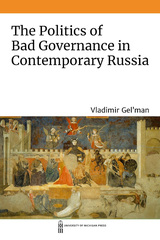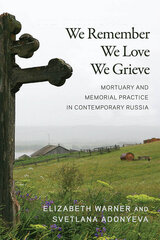
eTextbooks are now available to purchase or rent through VitalSource.com! Please visit VitalSource for more information on pricing and availability.
Faces of Contemporary Russia is a one-semester textbook for high-intermediate to advanced level Russian students that aims to develop students' linguistic proficiency by examining significant personalities in current Russian culture. In addition to introductory and concluding chapters, the book features twelve individuals (one per chapter), drawing from a range of areas such as arts, sports, journalism, and business. While upper-level Russian textbooks tend to emphasize grammar and reading more traditional works of Russian literature, this book instead seeks to primarily engage students in learning about and discussing the breadth of contemporary Russian culture while weaving the study of grammar and vocabulary into those discussions. In addition to readings and in-class communicative activities, the book also features guided research assignments that encourage students to make use of the many personality interviews and YouTube clips available online.
For Instructors: Exam copies of the textbook are available free of charge to instructors and can be ordered on this page. To request a print sample, please use the "print" exam copy button. To request a digital sample, instructors should log onto VitalSource.com, select "Faculty Sampling" in the upper right-hand corner, and select the desired product.


“We remember, we love, we grieve” is a common epitaph in this part of the world. As contemporary Russia contends with the Soviet Union’s legacy of dismantling older ways of life, the phrase ripples beyond individual loss—it encapsulates communities’ determination to preserve their customs when faced with oppression. This volume offers insight into a core cultural practice, exploring the dynamism of tradition.

Linda Racioppi and Katherine O'Sullivan See present a concise history of women's situation in tsarist Soviet Russia, which shows how their ability to organize was constrained by social strictures and state policies. They also analyze how the state-sponsored Soviet Women's Committee and new groups like the Independent Women's Forum, the Women's League, and the International Institute for Entrepreneurial Development responded to the challenges and opportunities of the transition. The authors examine the dynamics among these groups as well. The personal life histories of the activists reflect the ways women have responded to the changing political, economic, and social landscape in the former Soviet Union.
READERS
Browse our collection.
PUBLISHERS
See BiblioVault's publisher services.
STUDENT SERVICES
Files for college accessibility offices.
UChicago Accessibility Resources
home | accessibility | search | about | contact us
BiblioVault ® 2001 - 2024
The University of Chicago Press









